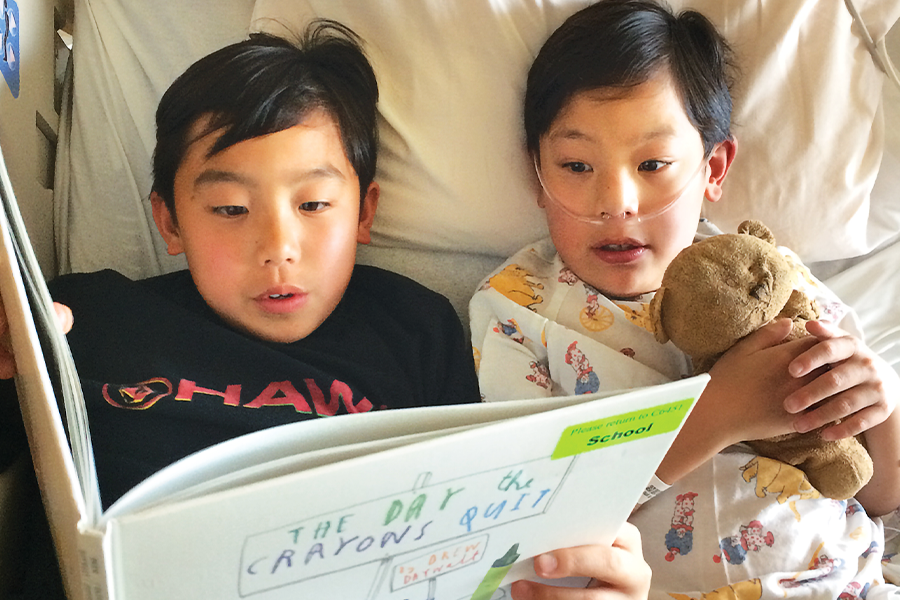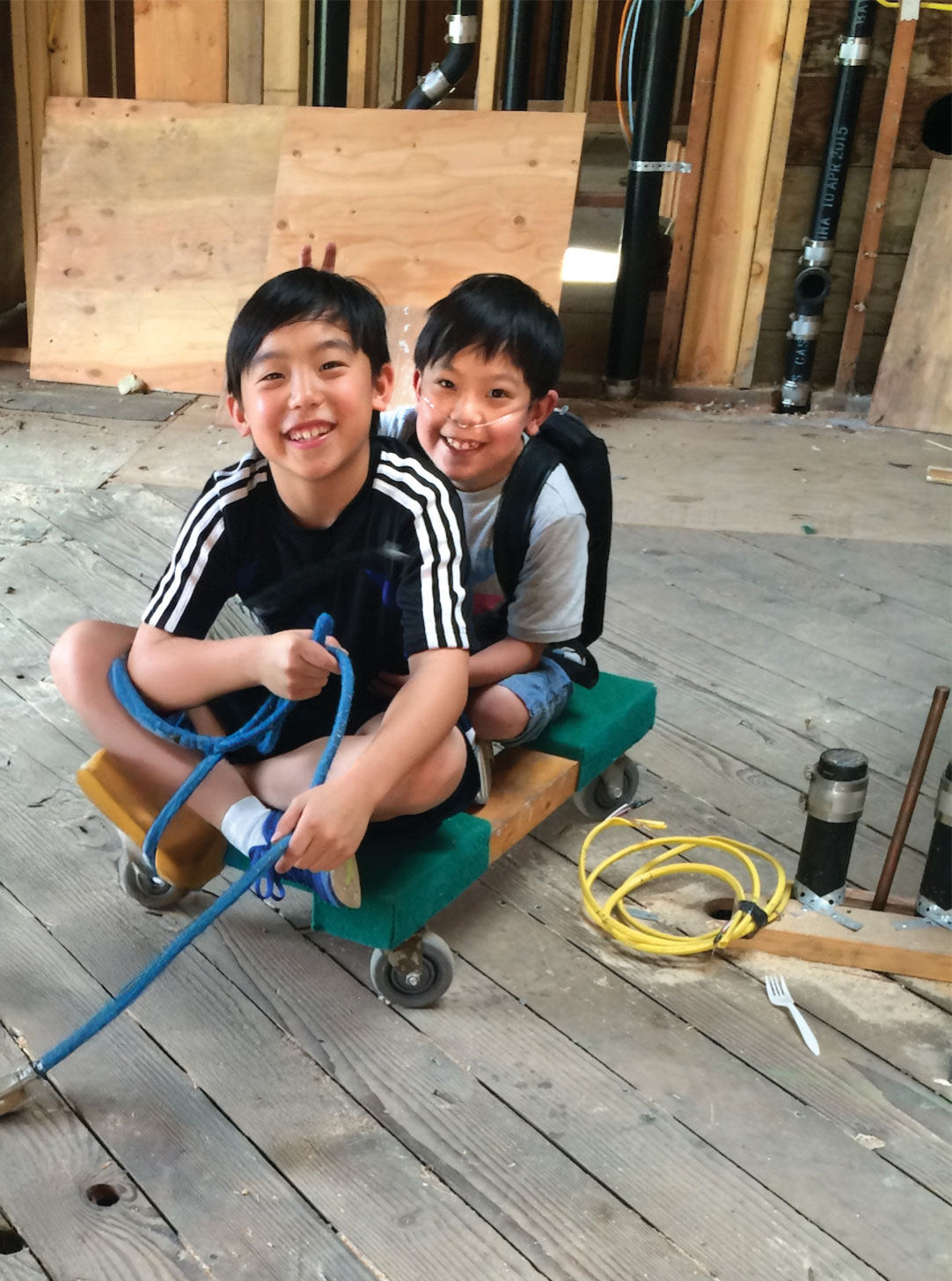Beyond Patient Care
How our hospitals show up for siblings during life’s most challenging moments

When Kyle Quan was 12, his little brother, Kaedyn, passed away.
Kaedyn was born four months premature with pulmonary hypertension when Kyle was 18 months old. Kaedyn spent the first weeks of his life in the neonatal intensive care unit, and many days thereafter in treatment, at UCSF Benioff Children’s Hospitals. For Kyle, the hospital halls are ubiquitous in his recollections of childhood.
Mature beyond his years, Kyle tried to do what was expected of him to make things easier on his parents. He was a diligent student, but when Kaedyn was hospitalized, his mind would wander: Were they prepping him now? Had the surgery worked? And underneath all that poise, there was anger. Why Kaedyn? Why did this have to happen to his family?
Kyle had just started middle school when Kaedyn died. The grief was debilitating, but Kyle bottled it up so his parents wouldn’t worry. His mental health deteriorated.
“It got ugly,” Kyle says. “I didn’t want to be here. I would put on a smile, a mask, when I was at school, when I was around my parents, but in my room, when I was alone, I was like, ‘I’m the older brother. It should have been me.’”
Kyle eventually confided in his parents. He was diagnosed with depression and received treatment that helped him begin to process his unimaginable loss.
The Invisible Child
When asked to describe her work as a child life specialist at UCSF Benioff Children’s Hospitals, Kim Ong pauses, then says, “It can be hard to describe. We just do everything we possibly can to help our patients cope.
“Being in the hospital comes with so much stress and trauma, and our job is to minimize that,” she continues. “We try to help them understand what’s happening, what a procedure is going to feel like. We help them cope with all the pain. Give them outlets for processing what they’re going through. It’s all about trying to make the hospital a little bit more comfortable, a little bit easier.
“And everything I just described, I try to do for the siblings, too.”
Watching a sibling battle a life-threatening illness can be profoundly impactful for a child, Kim says. Siblings confront prolonged periods of separation from their caregivers; experience feelings of isolation, guilt, and grief; and struggle to comprehend what’s happening — both in terms of their sibling’s illness and everything they’re seeing and hearing at the hospital.
“Sometimes the sibling has the hardest experience,” Kim says. “It’s like they become invisible, an afterthought. But they have to live with what happened. All the investment and intention that we put into our patients, we need to be doing that for siblings too.”
A Novel Program
Sibling support has always been a key role of our child life specialists, but around the time that Kyle and Kaedyn were boys, a child life specialist saw a need for more and began advocating for additional organized support. The team established a Sibling Committee, which launched a sibling carnival — a day for brothers and sisters to let loose and have fun — and created a library of books for siblings on coping and grieving.
Today, siblings are encouraged to take advantage of the full range of child life services available to patients, including art and music therapy, animal-assisted therapy, the playroom, and the hospital school program — all of which are funded through philanthropy. The committee provides a sibling welcome bag with developmentally appropriate items, including an activity book that introduces the hospital and offers strategies for emotional expression. There’s also a coupon for a parent-sibling date at a local restaurant.
But Kim says there is a serious need for additional staff with the training and expertise to facilitate more targeted sibling interventions, such as support groups, bereavement counseling, and the dedicated one-on-one interactions that she feels so passionate about.
“The relationship building is my favorite part of what I do,” she says. “It is essential to making our work impactful. But it’s challenging to keep up with the workload. It takes time to develop these trusting and therapeutic relationships. And we’re just very understaffed.”
Pushing Forward
Kyle is now 19. He wears a dog tag around his neck with Kaedyn’s name on it. “So I always kind of have him with me,” he says.
He keeps the memories close to the surface now. He remembers playing Uno and Wii with Kaedyn, who would change the rules so he could win; how his little brother put a smile on everyone’s faces, particularly the nurses; the sound of Kaedyn’s high, raspy voice and infectious laugh wafting down the hospital hallways.
When life gets hard and Kyle feels down, he pushes forward for Kaedyn, who will never get to follow his own dreams. Now a freshman at the University of Oregon, Kyle hopes to pursue a career in medicine, to pay forward the care his family received during Kaedyn’s life.

"I’ve always felt like, despite that unlucky hand we were dealt, we were fortunate to have people in our corner, some really great doctors, some really great people, who were always good to us. Who were good to Kaedyn. I want to have an impact like that."